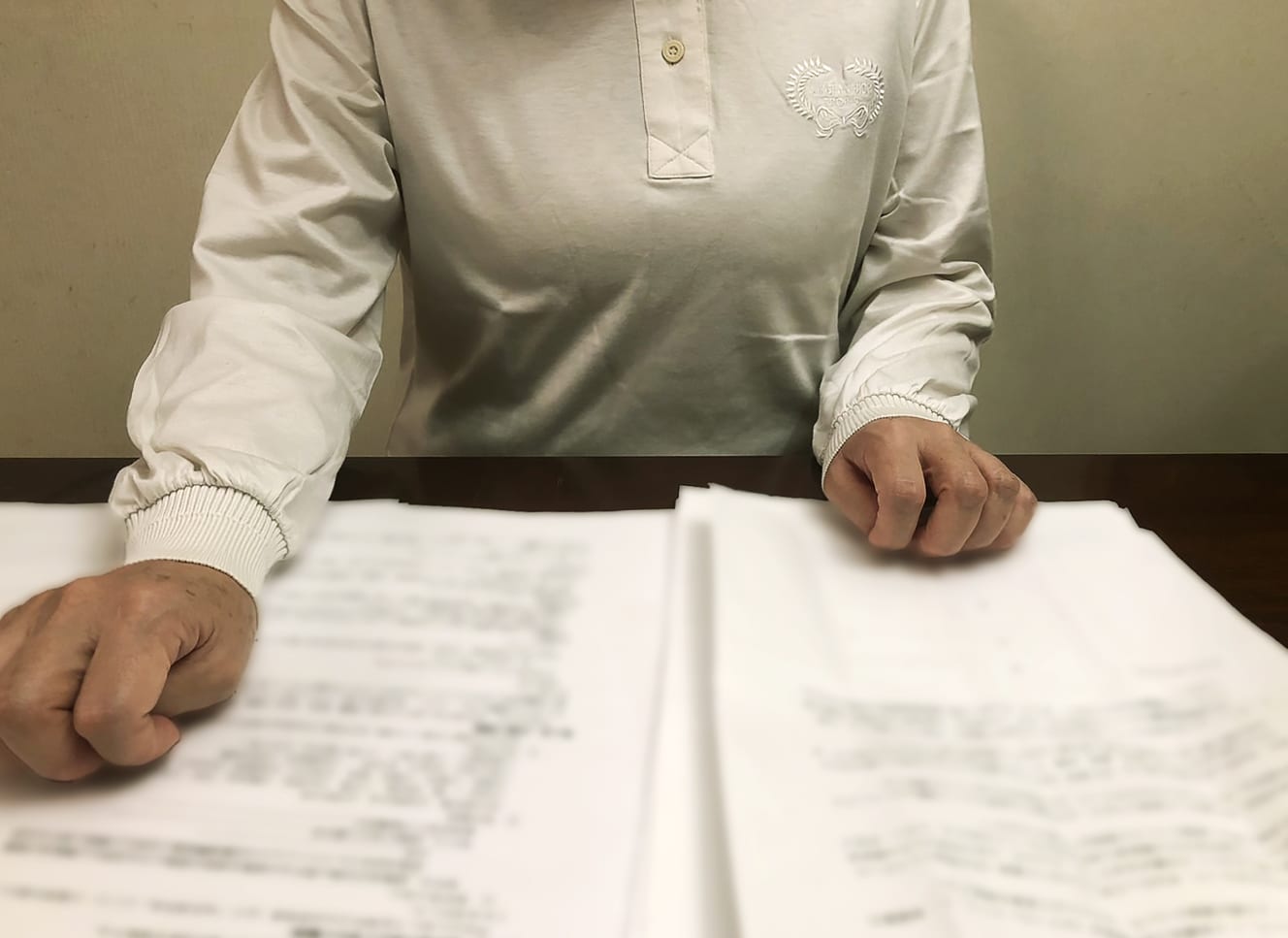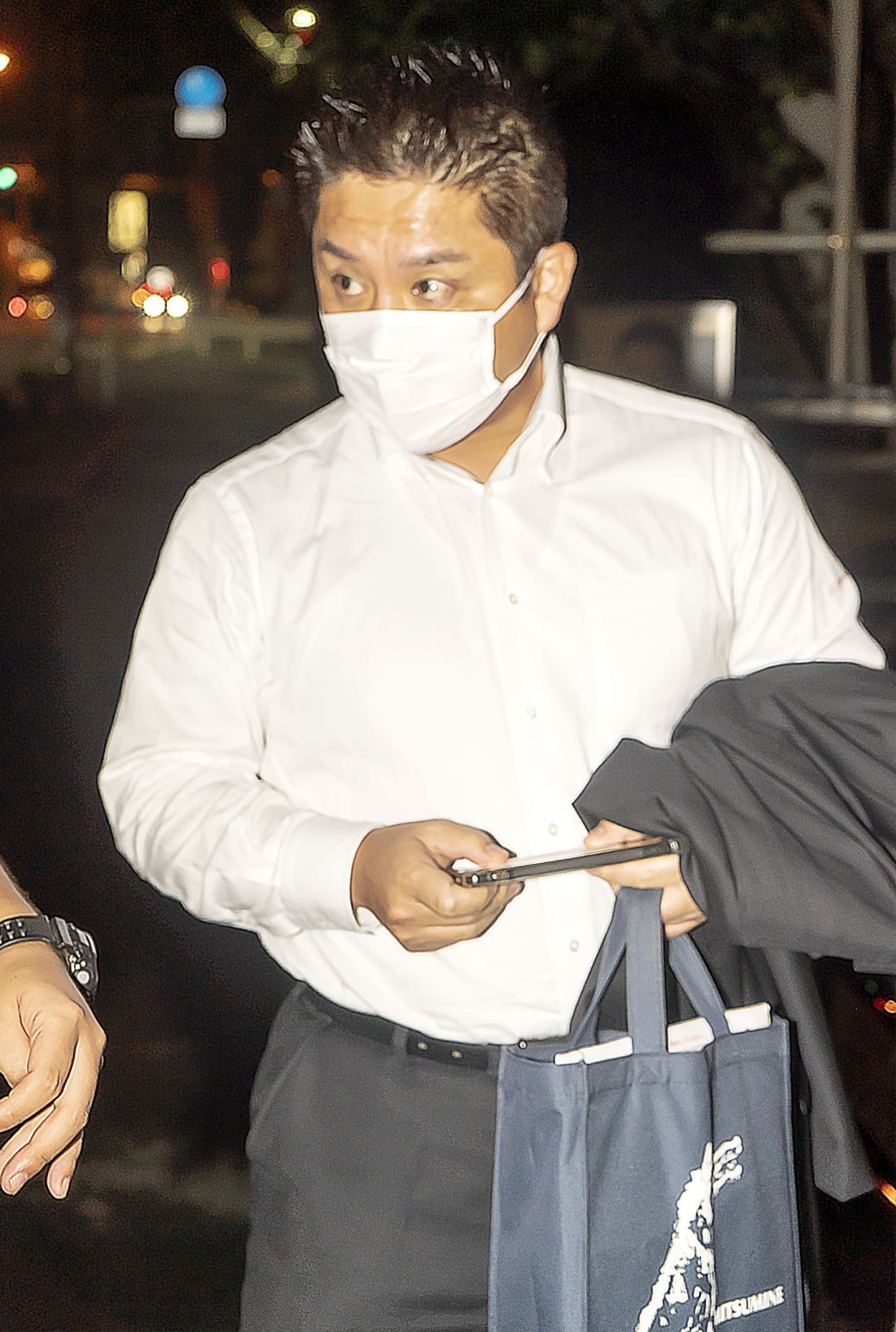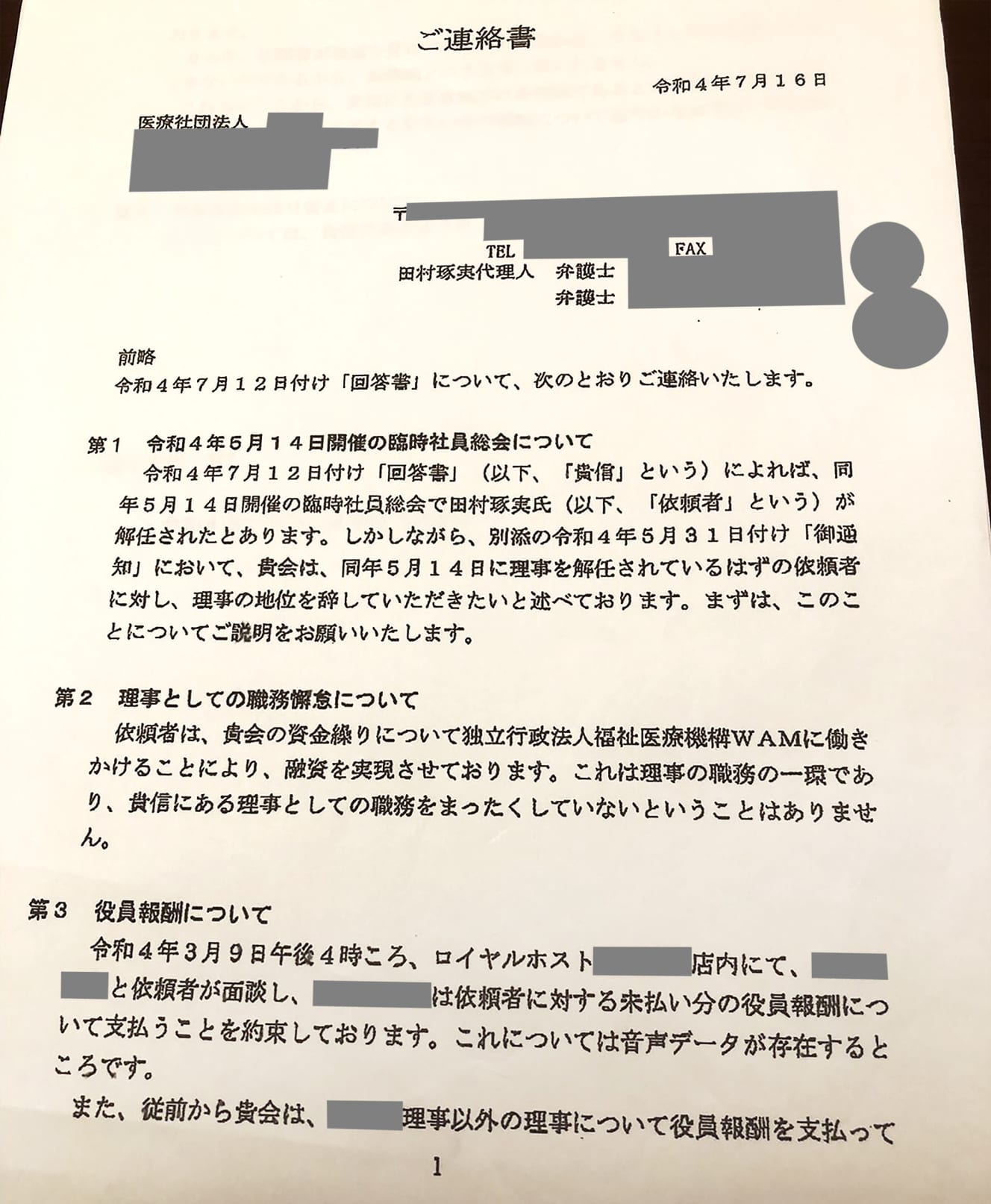Saitama Prefectural Assembly Member’s “Rogue M.O.” Using “Corona Support Funds
A director of a medical corporation in Saitama Prefecture has filed a complaint! Mika Yoshiba, a city councilor in Neyagawa, Osaka, was not the only one behind the support system of "WAM," an independent administrative corporation under the jurisdiction of the MHLW that provides loans to medical corporations and welfare facilities whose business has deteriorated due to the new Corona virus. ......
Have you ever heard of WAM, an independent administrative agency under the jurisdiction of the Ministry of Health, Labor and Welfare? WAM provides interest-free and unsecured loans to medical institutions whose business has deteriorated due to the COVID-19 crisis, and the total amount of loans provided under the program over the past two years amounts to approximately 2 trillion yen.

In August of this year, a Neyagawa City Council member from Osaka, Yoshiba Mika, and others were arrested for defrauding a medical corporation out of approximately 230 million yen. In August of this year, Osaka Neyagawa City Council member Mika Yoshiba and others were arrested for defrauding a medical corporation out of approximately 230 million yen.
However, it seems that Yoshiba was not the only politician who took advantage of the “WAM” to take advantage of suffering medical corporations.
In return for his help in getting WAM to pay for its services, a politician demanded that he be appointed to the board of directors of the medical corporation. The person is an incumbent member of the Saitama Prefectural Assembly.
Mr. A, a director of a medical corporation with several hospitals in Yashio City and other areas of Saitama Prefecture, expressed his anger in this way. The two incumbent Saitama prefectural assembly members are Takumi Tamura, 50, and Yukio Udagawa, 43.
The trigger was the decision to sell their building in May ’20 due to financial difficulties. The company to be sold was a company owned by one of Mr. Udagawa’s relatives, and they agreed to 160 million yen, but in return Mr. Udagawa demanded to be made a director of the corporation. As a director, Udagawa took custody of the company’s seal, bank books, etc., and assumed effective control of the company.
In July 2008, under the leadership of Councilor Udagawa, Mr. A’s medical corporation received a loan of 120 million yen from WAM. In July 2008, under the leadership of Councilor Udagawa, Mr. A’s medical corporation received a loan of 120 million yen from WAM. Three months later, Senator Tamura joined the corporation as a director.
He explained that “Mr. Tamura lobbied WAM to make the loan happen. Councilor Tamura, who became a board member, was not doing any work, but we were paying him 50,000 yen a month.
Undeterred, Mr. A and his colleagues, through their lawyer, recommended the dismissal of both Councilors Udagawa and Tamura. As a result, Udagawa was removed from the board, but Tamura remained until recently.
In a written exchange between the attorneys, Councilor Tamura clearly states, “I made the loan happen by lobbying WAM. He said that because he had done it by speaking for them, there was no reason for him to be removed from the board of directors. However, after Senator Yoshiba’s incident became public in August of this year, Senator Tamura suddenly said, ‘Let’s pretend that everything we talked about up until now never happened.
It is surprising that he would leave a document stating that the loan was made possible through his efforts. Hiroyuki Kamiwaki, a professor at Kobe Gakuin University and an expert on the issue of politics and money, said, “If he was a mouthpiece, he would have been a member of the Diet.
If he was a hush-money lender, it would violate the Saitama Prefectural Assembly’s Code of Political Ethics,” said Professor Hiroyuki Kamiwaki of Kobe Gakuin University, an expert on politics and money issues. This is because it stipulates that council members must not advocate the interests of a particular company or organization, and must not act to receive unjust favors. On the other hand, if it can be proven that the legislator did not actually use his or her influence, but was instead compensated for it, he or she may be guilty of fraud.
How will the two senators plead? In response to a direct question from the magazine, Mr. Tamura answered as follows.
I only became a board member at the request of my junior colleague Udagawa. I have not lobbied WAM or performed any duties as a board member, and I don’t even know what WAM is. (As for the document (sent by the lawyer), Udagawa said, ‘If you pretend that you lobbied us, it means that you did your job as a board member. Perhaps I was too trusting of Udagawa, and perhaps I was too rash.”
Udagawa, on the other hand, responded.
Neither I nor Dr. Tamura personally contacted ‘WAM. Our lawyer filed the application. I invited Dr. Tamura, whom I trust, because the medical corporation was facing various problems and I was worried about going it alone. However, since it is true that I have no direct approach or involvement with ‘WAM'”
You told me to be a board member because I lobbied for it, but in fact, I did nothing. …… As a member of the prefectural assembly, isn’t this too vicious at any cost?


From the September 23, 2022 issue of FRIDAY
Photo by: Takayuki Ogawauchi (2nd and 3rd pictures)